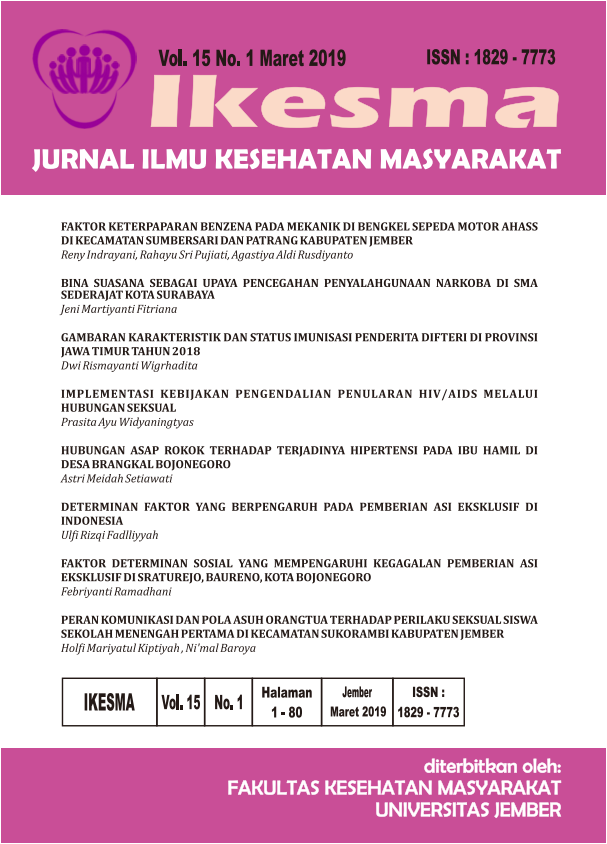IMPLEMENTASI KEBIJAKAN PENGENDALIAN PENULARAN HIV/AIDS MELALUI HUBUNGAN SEKSUAL
DOI:
https://doi.org/10.19184/ikesma.v15i1.14412Abstract
Indonesia is the fourth country with the number of HIV / AIDS incidents increasing from year to year. HIV is a virus that can cause AIDS. The occurrence of AIDS can not only occur in the city but has spread to remote villages. The number of HIV / AIDS incidents at this time is of concern to the world. Until the existence of an HIV / AIDS control policy that refers to the Getting To Zeros global policy, namely: (1) reducing to eliminate new HIV infections, (2) reducing to eliminate deaths caused by conditions related to AIDS, (3) eliminating discrimination PLWHA. Based on global policies, the Indonesian government issued a policy as an effort to prevent the spread of HIV / AIDS. The government also issued a policy which essentially prohibits sexual acts freely, penetration, and sexual relations in similar couples, children, deceased people, and animals. This review aims to conduct policy analysis and implementation in dealing with HIV / AIDS cases through free sexual relations and barriers that affect the success of policies. The results of this literature review are that the policy to prevent HIV / AIDS transmission in Indonesia is still not going well. These obstacles occur in the form of still a dilemma in the law. Evidenced by the existence of problems in translating global and national strategies into packages of (operational) action programs that easily measure success at all levels of service by considering the problem of HIV / AIDS. So far, the action programs carried out by Indonesia are still carried out inconsistently so that the results have not been felt. Thus, HIV / AIDS control programs are not enough to be carried out by health workers alone but must involve other sectors. The community is primarily a key population and the need for government roles and responsibilities.



